I’ve always been interested in genealogy. When I was 15, I asked my father all the schools he had ever attended. He humored me, thinking that in some way he’d always be around to tell me that information. Twenty years later, the ambulance came for the last time. I still have that list.
When I was 23, I asked my father’s father about our forebears. He was the most silent man I’ve ever run into, and by that time, he was bedridden. I had driven all the way out from West L.A. to Yucaipa, a 2-hour drive, and he wouldn’t talk. Finally, after about an hour, he said something.
“There’s more than one way to kill a cat,” he said with a sly grin on his face.
I waited for enlightenment, and then he gave it to me.
“The best way, though, is to slit it lengthwise along the belly and press up from the backbone.”
He did finally let me in on one important tidbit: his grandfather’s name.
“C.C. Brundage,” he said.
I wrote that down.
“You know what the C.C. stands for?”
“No, what?”
“Christopher Columbus.”
Grandpa Roy let out a weak grizzled laugh. It’s hard to describe what it sounded like, although maybe this captures it: It sounded like lung damage. He had smoked most of his life, and on top of that, had had a career working for decades at a paper mill, where paper fibers floated in the air at all times. Even at age 18, he was working at a factory that manufactured strawboard, which was a kind of paper made from straw. I’m sure those fibers were permanently embedded in his lungs, too. He died at age 70.
But the toughest genealogical resource in my family has always been my mother. It’s not that she doesn’t give me information, although she sometimes does it in a grudging way, as if elucidating the past is putting another nail in her coffin. Her toughness expresses itself in different ways, but in this example, it’s that she has never filed a census form.
In my genealogical researches, census forms have been my most valuable resource. Through that, I have established the names and birth dates of many relatives. In the common U.S. Census form, they first list the head of household and his or her age, and then list the other occupants and their ages. Often, it’s clear what their relationship is. In that way, I established that my great-grandfather’s name was Charles (born 1869), my great-great-grandfather’s name was John (born 1836), and my great-great-great-grandfather’s name was John, as well (born 1792). I’ve also established the names of sons and daughters that have branched off my direct line.
Census forms also provide other fascinating information, too. Depending on the year, U.S. Census forms have asked questions such as:
- Level of education attained
- Employment
- Disabilities
- Occupation
- Address
- Race
- Birth country of parents
- Relation to head of household
- How many slaves you own
I make no excuses for my mother. She’s guilty as charged. But who is ever going to prosecute her for it?
It was in the year 2000 that I first witnessed her dodging the census taker, but it was in 2010 that I became acutely aware of it. Because she had had a couple of strokes, I began going to her house on a more regular basis.
“Did you lock the front gate?” she would ask when I entered the house.
“No.”
“Well go lock it.”
“Why? I’m here to protect you.”
“The census lady is looking for me.”
“Why don’t you want to fill out the census?”
“It’s none of their business.”
So I would lock the gate upon arriving at her house, and again upon leaving, shaking my head all the way.
This evasion went on for months and months. Sometimes, I would ask her why she was so dead-set against filling out the census.
“I’m a very private person,” she would say.
“They don’t release the census to the general public,” I would say.
“It’s still none of their business. Oh, you’re such an open person. You’re always writing things on the Internet, giving away all of our personal business. Why do you have to do that?”
“What is there to be afraid of?”
“Because it’s nobody else’s business!”
Strangely, very strangely, I have very different conversations with her about government surveillance.
“My new novel is about a woman who has a secret admirer in the NSA,” I said. “He loves her and he hates her. He’s spying on her all the time without government clearance. It points up the dangers of having such an extensive surveillance apparatus here in the U.S.”
“But we’re at war.”
“Mom, we’ve been at war for 12 years against the terrorists. There’s no end in sight. When is it going to stop?”
“Why do you have to get involved in politics?”
“So you’re afraid of the census lady but you’re not afraid of people who can listen to all your phone calls and read all your mail and don’t need a court order to do it.”
“Let’s not talk about this.”
I rarely show my blogs to Mom. To most of them, she wouldn’t react well. Mentally ill forebears, a great-uncle who shot himself in the chest at age 40, a brain-damaged great-aunt who babbled nonsense.
Why do they have to know our business?!
Because if you don’t tell the truth in your writing, dammit, you might as well be manufacturing sleeping pills. Because it’s intimacy. It’s charged. Hell, I open my arms to the world. I let them see my scars. I let them judge me. I let them sneer at me, because sneering is what they do, and this is what I do. So sue me.
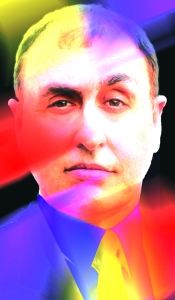

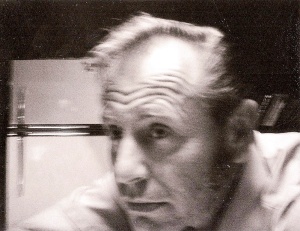
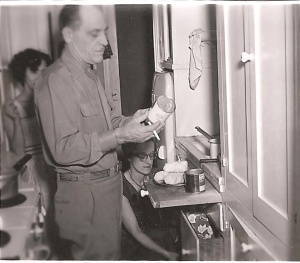
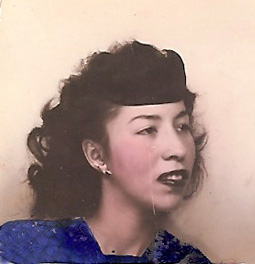
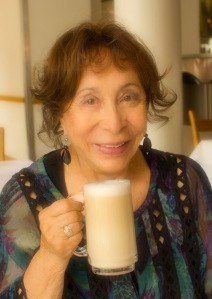

You must be logged in to post a comment.